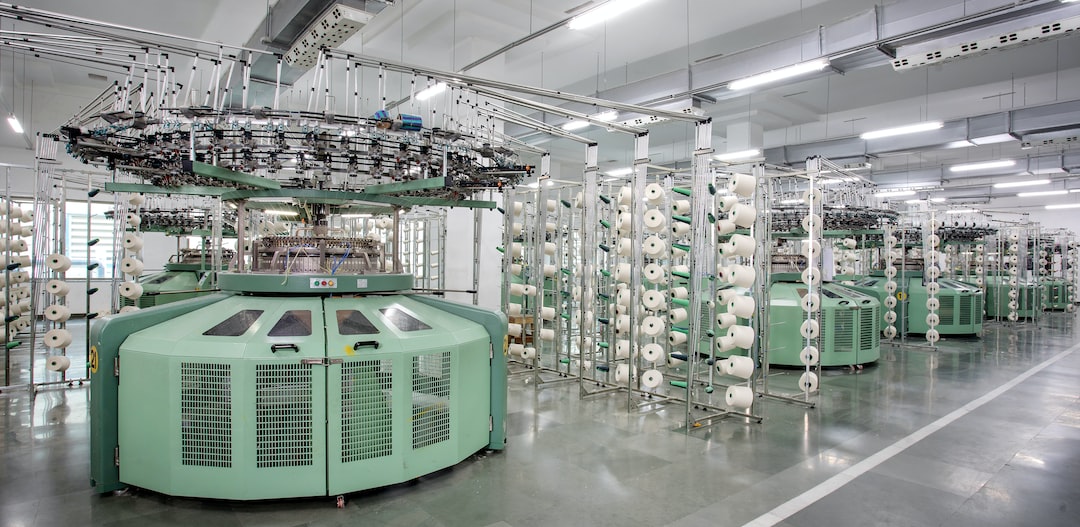Exploring the Potential of Blockchain in Supply Chain Traceability
The supply chain industry is one of the most complex and multi-layered systems in the world. From raw material sourcing to manufacturing, distribution, and finally reaching the end consumer, products travel through numerous hands and processes. As a result, ensuring transparency and traceability throughout the entire supply chain can be daunting. Fortunately, with the rise of blockchain technology, there is now a potential solution to this challenge – using blockchain for supply chain traceability.
Blockchain, as most people know, is the underlying technology behind cryptocurrencies like Bitcoin. However, its potential extends far beyond digital currencies. In essence, blockchain is a decentralized and immutable ledger that allows multiple parties to create a secure and transparent record of transactions. This technology eliminates the need for intermediaries, ensures data integrity, and provides an audit trail that can be accessed and verified by all authorized participants. These features make blockchain an ideal tool for supply chain traceability.
One of the biggest advantages of utilizing blockchain for supply chain traceability is its ability to create a single version of the truth. Currently, supply chain data is often fragmented and scattered across different systems and organizations, making it difficult to track and verify. With blockchain, every transaction and information update is recorded in a decentralized and shared ledger, accessible to all participants in real-time. This ensures that all parties have access to the same, accurate information, simplifying the process of validating and verifying the origin and history of products.
Another key benefit of blockchain in supply chain traceability is enhanced security. Traditional supply chains are vulnerable to fraud, counterfeiting, and tampering as data can be manipulated or lost along the way. The decentralized nature of blockchain eliminates the risk of a single point of failure and ensures that data cannot be altered once recorded. Additionally, blockchain uses advanced cryptography to secure transactions and information, further reducing the possibility of data breaches or unauthorized access. This increased security not only protects businesses from financial losses but also helps to preserve consumer trust.
Blockchain also has the potential to revolutionize supply chain management by streamlining processes and reducing costs. Today, supply chain management involves a significant amount of paperwork, manual data entry, and communication between different parties. These processes are not only time-consuming but also prone to errors. Blockchain can automate and digitize many of these processes, creating a seamless and efficient supply chain ecosystem. Smart contracts, for example, can be programmed on the blockchain to automatically execute predefined actions or trigger alerts based on predefined conditions. This eliminates the need for intermediaries and reduces the risk of human error, ultimately improving overall supply chain performance.
The use of blockchain for supply chain traceability has gained traction in several industries. For example, in the food and beverage sector, blockchain can help track the origin and journey of ingredients and products, ensuring food safety and reducing the risk of contamination. In the fashion industry, blockchain can be used to verify the authenticity and provenance of luxury goods, helping to combat counterfeiting and protect brands. Similarly, in the pharmaceutical industry, blockchain can enable the tracking and tracing of drugs from production to distribution, ensuring the safety and integrity of medications.
However, despite its immense potential, the adoption of blockchain in supply chain traceability is not without challenges. One of the biggest hurdles is the interoperability between different blockchain platforms and systems. Currently, there is a lack of standardized protocols, making it difficult to integrate multiple blockchains and ensure seamless data flow. Additionally, there are concerns around scalability and energy consumption, as blockchain requires significant computational power and resources. Overcoming these obstacles will be crucial to unlock the full potential of blockchain in supply chain traceability.
In conclusion, blockchain technology has the potential to revolutionize supply chain traceability and bring unprecedented transparency to the global supply chain network. By creating a decentralized, secure, and transparent record of transactions, blockchain can enhance the security, efficiency, and integrity of supply chains across various industries. However, to fully unlock its potential, further research, development, and collaboration are needed to address interoperability and scalability challenges. With continued innovation and adoption, blockchain has the potential to reshape the future of supply chain management and traceability, making our global systems more transparent and accountable.

